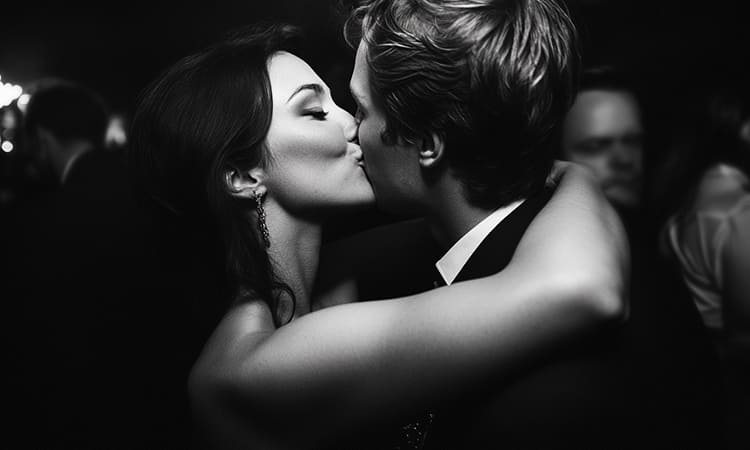As a psychologist, I’ve sat with countless individuals wrestling with the modern dating landscape.
They come in, eyes weary, shoulders slumped, recounting tales of ghosting, mismatched expectations, endless swiping, and conversations that go nowhere.
The overwhelming emotion? Frustration.
Deep, soul-sucking frustration that makes them question themselves, question others, and question if finding a meaningful connection is even possible anymore.
It’s easy to feel like you’re stuck in a frustrating loop – putting yourself out there, getting hopes up, facing rejection or disappointment, and ending up right back where you started, only more jaded.
If this resonates with you, please know you are far from alone.

This feeling is not a sign of failure; it’s often a natural response to a system that can, at times, feel designed to test our patience and resilience.
But here’s a truth I’ve learned: while the external challenges of dating are real, the source of our deepest frustration often lies within.
It’s not just about what’s happening to you; it’s about how you are perceiving and responding to it.
As the theologian Reinhold Niebuhr famously penned:
“Grant me the serenity to accept the things I cannot change, the courage to change the things I can, and the wisdom to know the difference.”
This quote, often associated with coping with difficult situations, is profoundly applicable to dating.
Much of the frustration comes from trying to change or control the aspects we cannot (other people’s interest, timing, behaviour) while neglecting the power we have to change our own approach, expectations, and mindset.
So, how do we shift from feeling perpetually frustrated to feeling more empowered and resilient on this journey?
Let’s delve into some psychological perspective shifts and practical strategies.
The Anatomy of Dating Discontent: Unpacking the Pain Points
Before we can address the frustration, we need to understand its roots.
What fuels this particular brand of exasperation?
Unrealistic Expectations
We’ve been fed narratives of instant sparks, soulmates, and effortless connection by media and culture.
When reality serves up awkward first dates, ghosting, or slow fades, the gap between expectation and reality creates significant disappointment and frustration.
Taking Things Personally
Rejection, lack of interest, or poor communication from others often feels like a direct indictment of our worth or desirability.
We internalize these experiences instead of seeing them as data points about compatibility or the other person’s situation/readiness.
Focus on Outcome Over Process
The goal becomes solely “finding someone” or “getting into a relationship.”
This intense focus on the end result makes every step of the dating journey feel like a stressful test or a hurdle, stripping away any potential for enjoyment or learning in the present moment.
Lack of Control
Dating involves vulnerability and relying, to some extent, on the actions and feelings of others.
This inherent lack of control can be deeply unsettling and frustrating for those who prefer to be in charge of their destiny.
Comparisonitis
Seeing others seemingly effortlessly find partners (real or perceived, especially on social media) fuels feelings of inadequacy and impatience.
“Why is it easy for everyone else?” we ask ourselves, adding self-criticism to the mix.
Time and Energy Investment
Dating requires significant effort – crafting profiles, swiping, messaging, planning dates, emotional investment.
When this doesn’t yield the desired results quickly, it feels like wasted effort, leading to resentment and burnout.
Understanding these underlying factors is the first step.
It’s not just the ghosting that hurts; it’s the combination of the ghosting triggering your fear of rejection, clashing with your expectation of basic courtesy, and making you feel like your invested time was worthless.
Recalibrating Your Inner Compass: Shifting Perspective
Since so much of the frustration stems from internal factors, powerful change begins within.
Adjust Your Expectations
This doesn’t mean lowering your standards for a partner, but adjusting your expectations of the dating process itself.
Dating is not a straight line to happiness. It’s a winding path with detours, dead ends, and unexpected views.
Expecting bumps in the road prepares you emotionally.
See dates as opportunities to connect with another human, and to learn more about what you like, dislike, and need in a potential partner.
Reframe Rejection
This is perhaps the most critical skill. Rejection is almost never a verdict on your intrinsic worth.
It’s usually a mismatch of timing, compatibility, goals, or simply someone else’s personal preference (which you couldn’t control anyway!).
View it as redirection. “Okay, that door closed, which frees me up for something else.” Every “no” gets you closer to a “yes” that is genuinely compatible with you.
It’s data gathering. Did you miss a red flag? Did you not articulate your needs clearly? Or was it simply not a fit? Learn, but don’t internalize.
Shift Focus from Outcome to Process
Try to view dating less as a high-stakes job interview and more as an exploration.
The goal isn’t just “a relationship”; it’s also experiencing life, meeting different people, clarifying your desires, and growing as an individual.
Can you find moments of genuine connection, humor, or interest in the date itself, regardless of future potential?
Define Your Non-Negotiables vs. Preferences
Frustration often arises from compromising too early or not knowing what you truly need.
Get clear on your core values and absolute dealbreakers.
Be ruthless in filtering based on these. Don’t waste time trying to force a connection that fundamentally clashes with your non-negotiables.
Be more flexible on preferences. This selective investment of energy reduces wasted effort.
Building Your Resilience Toolkit: Practical Strategies
Mindset shifts are powerful, but they need to be supported by action.
Prioritize Self-Care Vigorously
Dating can be emotionally draining. Ensure your cup is full outside of dating. Nurture your friendships, pursue hobbies, focus on your career, exercise, get enough sleep.
When your self-worth is rooted in a rich, fulfilling life, dating becomes an addition to your happiness, not the sole source of it. This makes rejection sting less and prevents burnout.
Set Clear Boundaries
Be clear about your availability (e.g., “I can do one or two dates a week”), your communication preferences (e.g., “I prefer to move off the app after a few days of good conversation”), and how you expect to be treated.
Don’t be afraid to disengage from people who are poor communicators, disrespectful, or show major red flags early on. Your time and energy are valuable.
Practice Mindful Dating
Be present on the date. Are you genuinely enjoying the conversation?
Are they asking about you? Are you asking about them? Is there a mutual flow?
Pay attention to how you feel in their presence, not just whether they tick boxes on a list or whether you think they like you.
This helps you make better decisions and avoid wasting time on incompatible connections.
Learn to Disengage Gracefully (and Expect Others To)
Not every conversation or date will lead to something more.
Have a simple, kind way to say you don’t see a romantic connection, and be prepared for others to do the same.
A simple “I enjoyed meeting you, but I don’t feel a romantic spark. Wishing you the best!” is kinder (and less frustrating) than ghosting or being ghosted.
Take Strategic Breaks
When dating feels overwhelming, exhausting, or like a chore, it’s your signal to pause.
There is no rule that says you have to date continuously.
Step back for weeks or months. Use this time to recharge, reconnect with yourself, and reinforce your well-being.
This isn’t giving up; it’s a tactical retreat to prevent burnout and regain perspective.
Don’t Over-Invest Too Soon
It’s easy to build someone up in your head after a few good messages or one great date. Try to stay grounded. Get to know the person gradually.
Observe consistency (or lack thereof). Do their words match their actions? Do they show genuine interest over time?
Slowing down the pace of emotional investment protects you from intense disappointment if things don’t work out.

Your Dating Journey: A Masterclass in Becoming More ‘You’
Ultimately, dating is a profound opportunity for self-discovery. Each interaction, each success, each setback teaches you something.
You learn more about your resilience, your communication style, your capacity for vulnerability, what you truly value in a partner, and what you won’t tolerate.
When you shift the focus from the frustrating external outcome (“Why isn’t this working?”) to the internal experience and growth (“What am I learning about myself and others through this?”), the frustration begins to loosen its grip.
Dating might still be challenging at times – that’s inherent when trying to connect deeply with another human being.
But by accepting what you cannot change, courageously changing your approach and mindset, and gaining the wisdom to discern between the two, you can transform the frustrating gauntlet into a path of self-discovery and, yes, potentially pave the way for a healthier, more fulfilling connection down the road.
Your worth is not determined by your relationship status or the success of your last date. It is intrinsic.
Approach dating from a place of already being whole and worthy, and you’ll find the frustrating noise starts to fade, replaced by a quieter, more centered confidence.

Understanding “No Strings Attached” in Relationships: What It Really Means

Courting vs Dating: What Are The Differences?
Frequently Asked Questions about Dating Frustration
Absolutely! It’s completely understandable and very common to feel frustrated, disappointed, or even burnt out given the difficulties of modern dating, which include issues like ghosting, sorting through many potential partners, managing different expectations, and the difference between online and real-life connections. Your feelings are valid.
There’s no set time. The length of your break depends on how you feel.
Take the necessary time to recharge and adjust your view, making dating feel less like a duty or something you dread.
This might be a few weeks, a few months, or even longer. Listen to your own needs, not external pressure.
This is a common frustration. It could be a sign to examine your filtering process, your initial screening criteria, or even patterns in who you are drawn to.
Sometimes it’s wise to establish your core needs and dealbreakers before starting communication, or to consider patterned red flags you may be missing early on.
A therapist can also help identify potential underlying patterns contributing to this.




